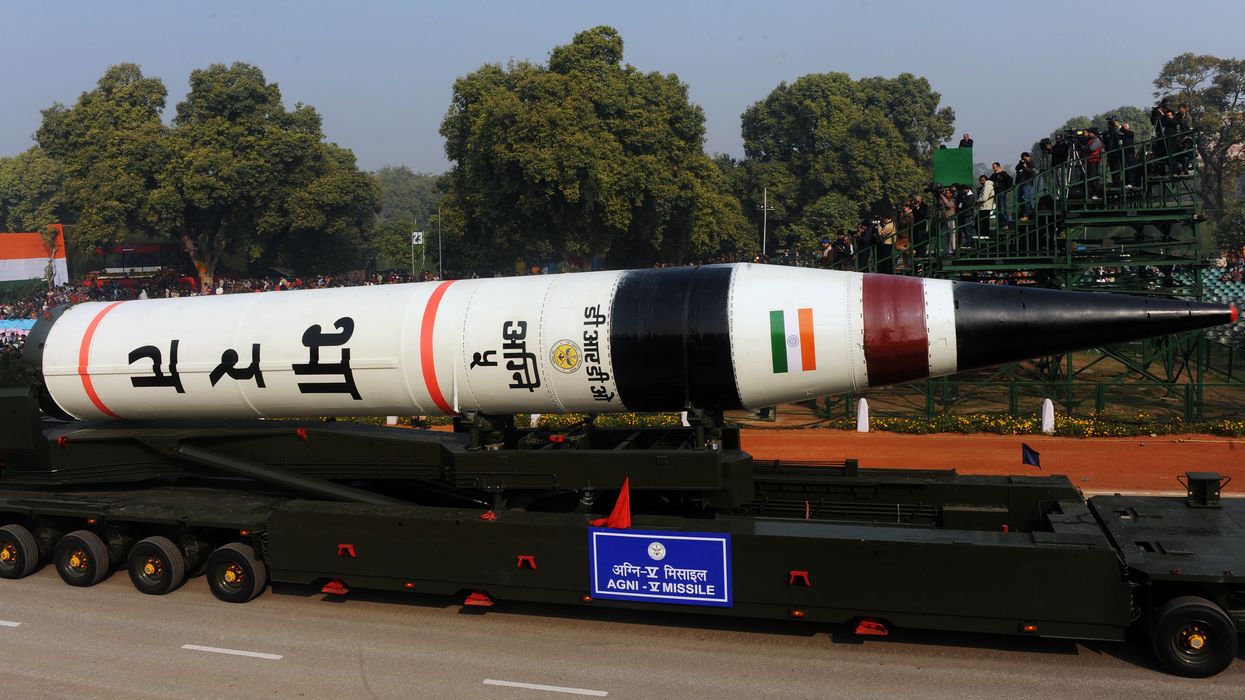Highlights:
- India says it successfully tested Agni-5 missile from Odisha on August 20
- Missile validated all operational and technical parameters
- Agni-5 can carry a nuclear warhead to any part of China
INDIA on Wednesday (20) said it had successfully test-fired the Agni-5 intermediate-range ballistic missile from Odisha, with officials confirming it met all required standards.
The defence ministry said, “Intermediate range ballistic missile ‘Agni 5’ was successfully test-fired from the integrated test range, Chandipur in Odisha on August 20.”
In a statement, it added, “The launch validated all operational and technical parameters. It was carried out under the aegis of the Strategic Forces Command.”
Authorities also said the missile, once operational, will be capable of carrying a nuclear warhead to any part of China.
Regional security context
India and China are regional rivals and relations worsened in 2020 after a deadly border clash.
India is also part of the Quad security alliance with the United States, Australia and Japan, which is viewed as a counter to China.
India’s neighbour and rival Pakistan also possesses nuclear weapons.
The two countries came close to war in May after militants killed 26 people in Indian-administered Kashmir, an attack India blamed on Pakistan. Islamabad denied any role.
Diplomatic ties
Despite tensions, Delhi and Beijing have taken steps to improve relations. Last October, prime minister Narendra Modi met Chinese leader Xi Jinping for the first time in five years at a summit in Russia.
Modi is expected to visit China later this month to attend the Shanghai Cooperation Organisation (SCO) summit.
At the same time, New Delhi’s ties with Washington have faced pressure. US president Donald Trump has asked India to stop purchasing Russian oil.
The United States has also said it will double new import tariffs on India from 25 per cent to 50 per cent by August 27 if India does not switch suppliers.
Missile programme
The Agni-5 is part of a series of indigenously developed short- and medium-range ballistic missiles designed to strengthen India’s defence posture against both Pakistan and China.
(With inputs from agencies)





